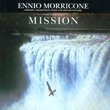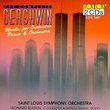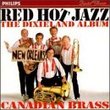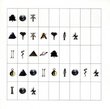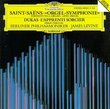| All Artists: Gustav Mahler, Eliahu Inbal, Frankfurt Radio Symphony Orchestra Title: Mahler: Symphony No. 10 (Prepared by D. Cooke) Members Wishing: 0 Total Copies: 0 Label: Denon Records Release Date: 8/30/1993 Genre: Classical Style: Symphonies Number of Discs: 1 SwapaCD Credits: 1 UPC: 081757512923 |
Search - Gustav Mahler, Eliahu Inbal, Frankfurt Radio Symphony Orchestra :: Mahler: Symphony No. 10 (Prepared by D. Cooke)
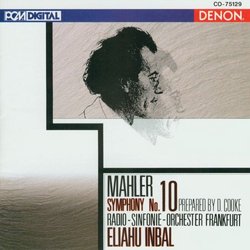 | Gustav Mahler, Eliahu Inbal, Frankfurt Radio Symphony Orchestra Mahler: Symphony No. 10 (Prepared by D. Cooke) Genre: Classical
|
Larger Image |
CD DetailsSimilarly Requested CDs
|
CD ReviewsA non-testamentary inheritance Massimo Marullo | Messina, Italy | 03/01/2000 (5 out of 5 stars) "A lot of words have been spent about the reconstruction, effected by Deryck Cooke, of the rests of Mahler's tenth symphony, whose original scores are complete only (even if in a non-definitive way) in the andante-adagio (well known and more times recorded) and in the movement denominated "Purgatorio". The reconstruction of the work is based on a revision of the original score, for a total of five movements whose sequence had been pointed out by the author, in more parts at the stage of draft or note, and in others enough finished as regards its melodic and formal plans, even if not yet orchestrated. The great conductors and musicians direct depositaries of Mahler's testament (Walter, Klemperer, Krenek, Webern, Berg) have always rejected the hypothesis of a completion of the symphony, while the majority of the conductors have performed and recorded the andante-adagio only. Really, I think that Cooke's work is worty to be approved because, with great intellectual honesty, Cooke himself called his realization " a performing version of the draft for the tenth symphony" and he was always concerned to stress that it was in no sense a completion, since only Mahler himself could have. D.Cooke wanted so to make sensitive what the symphony was at the moment of Mahler' death, an not a pretentious reconstruction of what doesn't exist. We can so consider the tenth symphony reconstructed by Deryck Cooke like a non-testamentary inheritance, thanks to which we can enjoy of beautiful moments of music (especially in the fifth movement), worty to be known. Eliahu Inbal is a conductor whose authoritativeness in the field of the interpertation of Mahler's works is undisputed. His integral recording of the symphonies is appreciated with justified enthusiasm by public and critics. The tenth is interpreted with great precision and clarity by Inbal, with a preference for an analytical approach than an emotional one. Such extreme precision of this interpretation is testified by the fact that the andante-adagio is here present in a new recording, not having been used the preceding one belonging to the integral edition. As far it concerns alternative versions, I know that by Chailly, that appears more emotional than analytical, while I don't know the version by Rattle, of which I have read favourable rewiews. The technical quality of the recording is excellent." This is the best of the Mahler 10 interpretations Jim Rickman | Sudbury, MA USA | 12/12/2003 (5 out of 5 stars) "By far, the most outstanding interpretation of Deryck Cooke's realization (his 2nd version) of Mahler's Symphony No. 10. I've listened to both of the Rattle recordings and the ones by Chailly and Slatkin, but this one by Eliahu Inbal is the one that satisfies me the most (and it's also the one I discovered after all those others). Inbal does take it faster than the others, especially in the 5th movement, but I find this works far better than the slow almost still-life efforts of the rest. Rattle in his much praised Berlin recording, tries to wrench from the score all the emotion he can, but it comes off has too affected for me, whereas Inbal's recording (done in 1992) has a singing quality that is just as passionate and emotional. Inbal's way of bringing out the passion of the last Almshi cry near the end of the 5th movement is, for me, the most heart-wrenching of all the interpretations. This should be the first choice for every Mahlerian." Inbal or Rattle? Ralph Moore | Bishop's Stortford, UK | 02/21/2010 (5 out of 5 stars) "I know that there are other recommendable recordings out there, but comparison of these two makes sense to me for several reasons, practical and aesthetic: one, I own them both; two, they are both excellent; three, they represent contrasting, very diffferent but equally successful interpretative stances.
Rattle's version has attracted far more attention and many more reviews, for obvious reasons, but don't let that, in combination with the fact that his Mahler cycle as a whole might not be up there with the front runners, lead you to dismiss Inbal. For some reason, Inbal and his Frankfurt orchestra really came into their own for this one. Broadly speaking, Rattle's view of this wonderful symphony, in the equally admirable completion by Deryck Cooke, is typical of his strengths (reflected in his latest Brahms symphony cycle) and weaknesses (an ennervated and static Requiem by the same composer) as a conductor. Occasionally, he relies too heavily on too ponderous an approach which can cause his interpretation to plough into the sand and choke. Here, although he favours much broader tempi and phrasing than Inbal, I think he gets away with it: this is a grand, monumental 10th, far more tragic and reflective than Inbal's nervier, more propulsive and hopeful account. Thus, some find Rattle nerveless and cold, others find a stately beauty in his more reserved approach. Both versions enjoy superb sound. Rattle's is spliced from two live performances and is slightly rounder and duller - or perhaps less edgy? - than Inbal's brighter studio recording; either way, the ambience provided complements each conductor's artistic choices. Inbal's woodwind is more pungent but there is more sheen on the Berlin strings - which could be the result of both their innate orchestral sound and the engineering. Both orchestras play superbly, although some find an echo of too much smoothness in the BPO's strings - a remnant of the Karajan era, they complain. Movement by movement, the same generalisations are confirmed in the details: the opening is more resigned and yet more tender, too, under Rattle; more violent and heroic under Inbal, especially in the shattering, climactic, nine-note dissonance and the A-flat minor chorale. Both Scherzos are weightier and more refined under Rattle; more rustic, unbuttoned and even vulgar under Inbal, especially in the Ländler sections. I love the way Inbal's brass screams and howls in the second Scherzo; Rattle is almost too civilised by comparison. In the tiny, central "Purgatorio" movement, Rattle brings darker sonorities and colouring, Inbal is sharper. The interpretation of the vast final movement could be a clincher for some listeners: the otherwordly beauty of the flute's theme leading into the concluding cantabile section is exquisitely played by Rattle and the BPO; his broader tempo and their singing strings impart a profound melancholy which offers less of a sense of resignation and consolation than Inbal's vibrancy. Both make much of the bitterly ironic quotations from "Das Lied von der Erde". One crucial detail stands out for me: I much prefer the way in which Inbal secures a real swooping, Mahlerian portamento from the Frankfurt strings on that last leaping sixth skywards; Rattle's is almost diffident in its polite timidity. In the last resort, I prefer Inbal's heart-wrenching humanity to Rattle's bleaker, more detached stateliness, but make no mistake: both are deeply moving, wholly recommendable recordings." |

 Track Listings (5) - Disc #1
Track Listings (5) - Disc #1